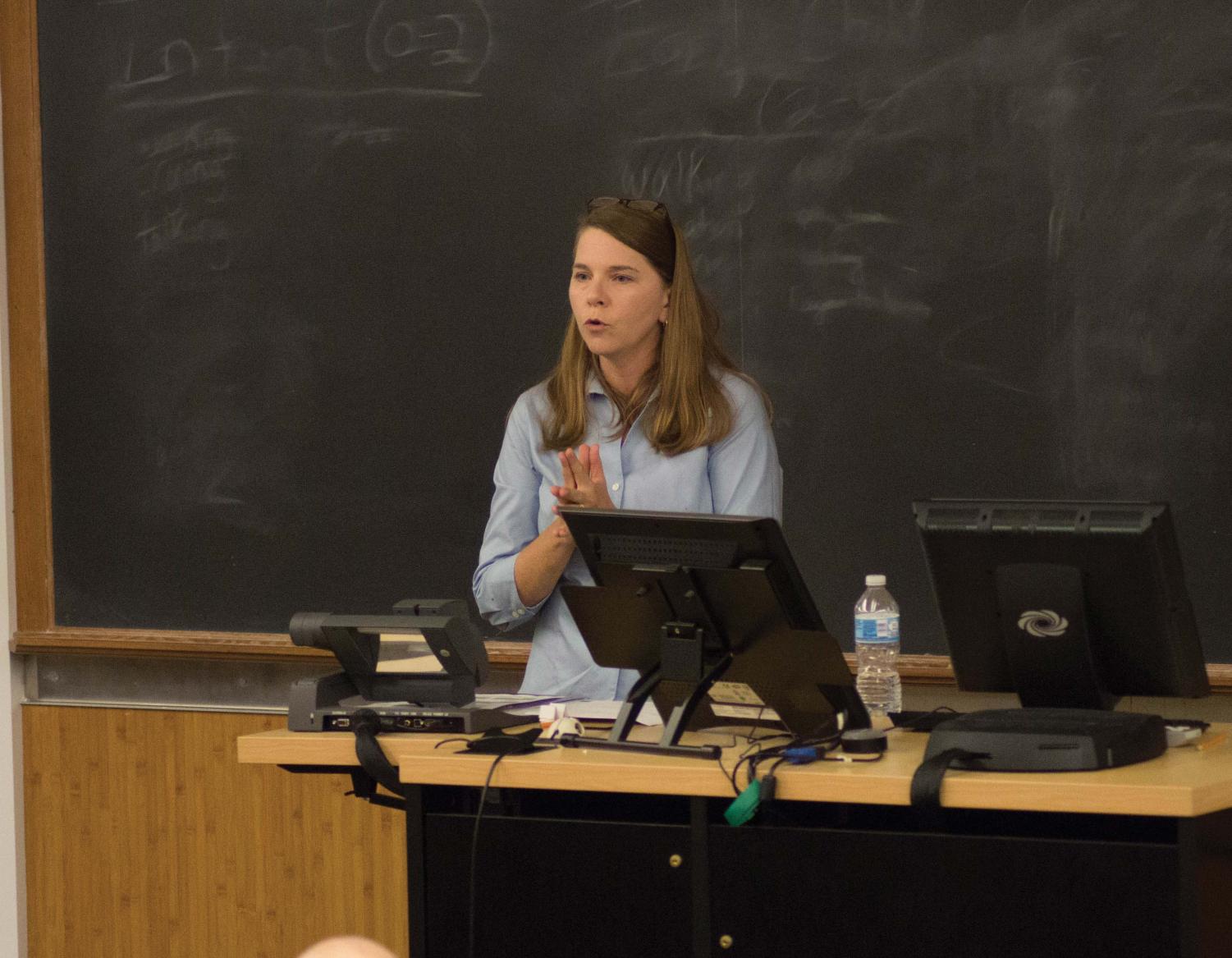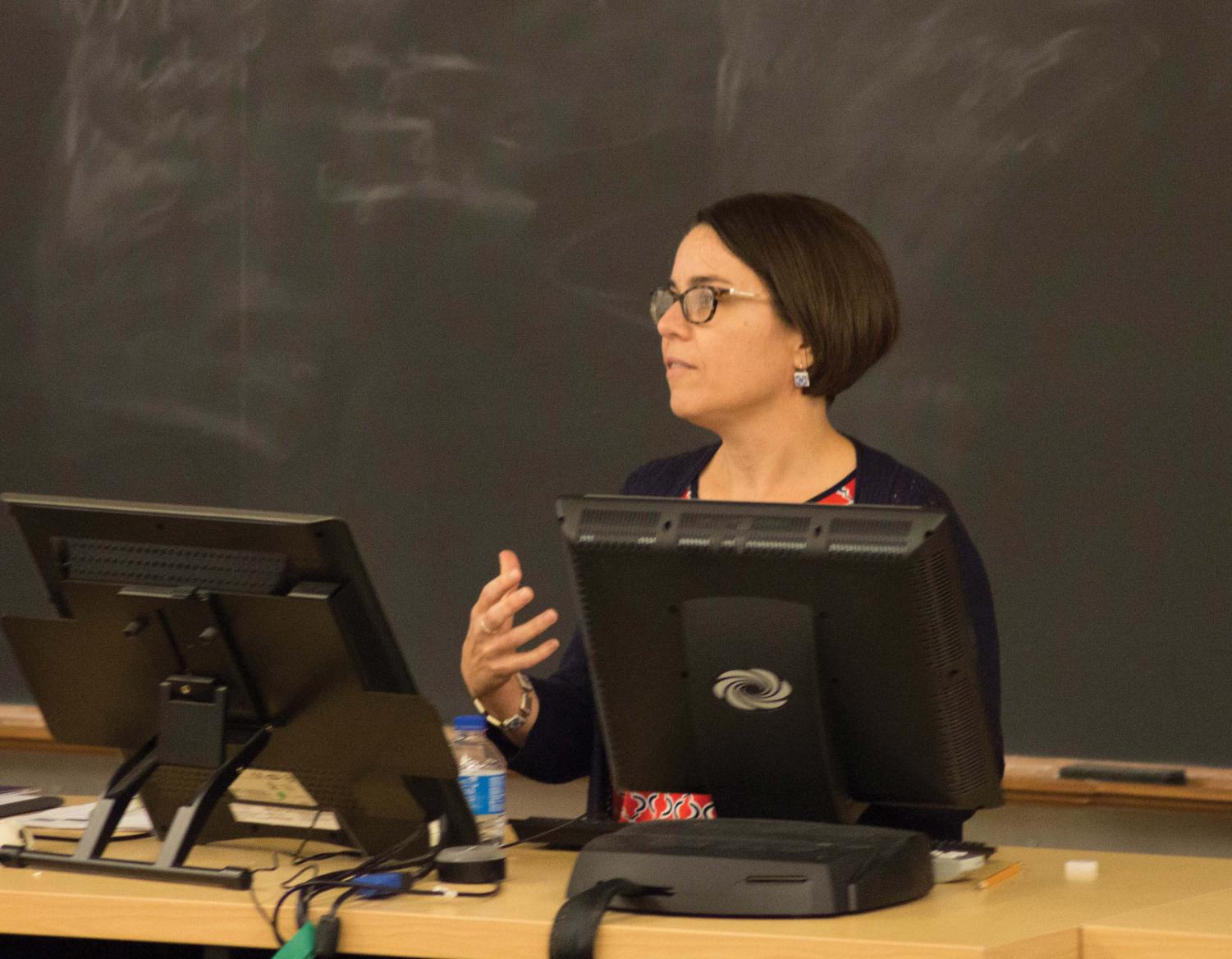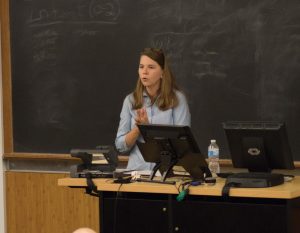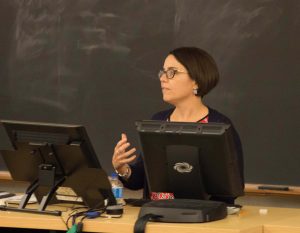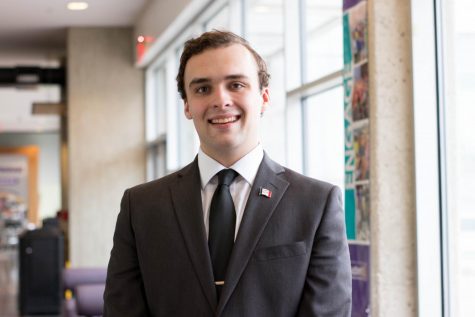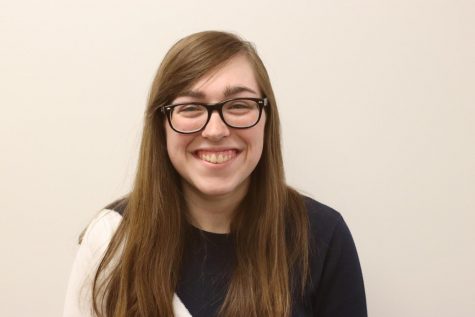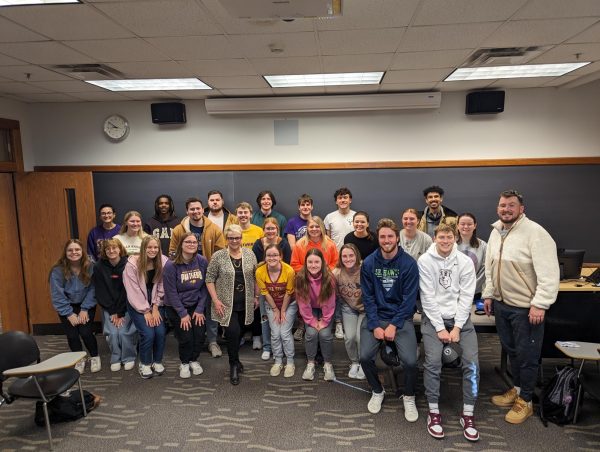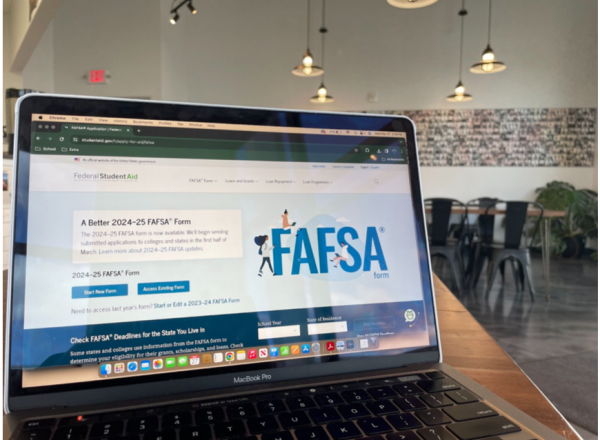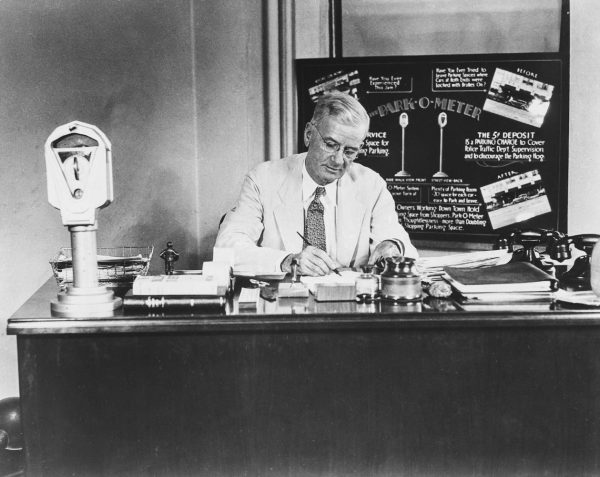Profs hold Constitution roundtable
Sep 20, 2018
Is this normal?
According to Scott Peters, UNI Department of Political Science chair, this has been the most asked question of political science faculty throughout the past year. At 7 p.m. on Sept. 19, the #PanthersVote lecture series held a panel discussion over the topic. The panel included several professors from varying departments and was sponsored by the American Democracy Project.
The panel was UNI’s method of commemorating Constitution Day, a Sept. 17 holiday which, according to the United States National Archives, “is designated as Constitution Day and Citizenship Day to commemorate the signing of the U.S. Constitution in Philadelphia on September 17, 1787.”
According to Peters, panels like these are of particular importance in today’s political climate because “…democracy seems more vulnerable than just a few years ago.”
The panel began with a lecture by Jayme Renfro, “The Economy and You.” Renfro touched on the question of whether it is normal that the economy is largely seen as “booming,” “but that most Americans are not feeling the ‘booming’ economy?”
Renfro presented a case that Americans give disproportionate weight to misleading statistics when analyzing how well the economy is doing. She noted that common economic barometers such as GDP, the stock market, and unemployment rates give a clear picture of how very wealthy Americans are doing, but does not give a quality picture of how most of the population is doing. Renfro cited real wage stagnation in the past 40 years, meaning today’s American workers have the same purchasing power as they did in 1978, and an employment rate of 15 percent among men ages 25-54 when people who have given up looking for work are included in unemployment statistics as evidence that most Americans aren’t doing as well as popular economic narratives would suggest.
“It’s not normal,” said Renfro. “We used to have wages that grew, we used to have unions, we used to have a manufacturing sector, and so this idea that ‘Oh the economy is doing so well,’ sure, it is doing well, but that doesn’t necessarily mean that all of us are going to be feeling it.”
Political science professor Donna Hoffman discussed the role of norms in a democratic society, such as the United States.
Hoffman said that norms are necessary for a democracy to function and expressed concern with several norms broken by the Trump campaign and administration in the past few years. She also discussed the use of non-disclosure agreements during the drafting of a 2017 executive order.
“That was put together with the help of staffers from the House Judiciary Committee. Staff are often people who haven’t been out of college long, they go work for Congressman on their staff… the staffers that worked on that executive order had to sign non-disclosure agreements for the White House. Meaning that they could not tell their boss, the member of Congress, what they were doing,” said Hoffmann.
Hoffman also expressed concern with the Trump campaign’s failure to disclose, Trump’s tax returns, appointment of family members Ivanka Trump and Jared Kushner to White House roles, lack of respect towards foreign leaders, the increasingly partisan use of American law-enforcement institutions and referring to the press as the “enemy of the American people.”
“If there are no norms… then what will constrain a future president? Once a president does something, it is then a precedent. Oftentimes, future presidents follow. What contains presidential behavior if the Congress doesn’t check that behavior?” said Hoffmann.
Communication studies professor Christopher Martin gave a lecture titled, “Gaslighting: Demonizing the Press.” Martin began by saying, “Politicians lie… some politicians lie more than others.” He cited a Washington Post report which documented over 5,000 misleading or false statements from the Trump administration since Trump was inaugurated.
He discussed the tension between the president and the media, and that this isn’t the first time the press has come under fire from an American president. Martin cited a Lyndon Johnson quote: “If one morning I walked on top of the water across the Potomac River, the headline that afternoon would read: ‘President Can’t Swim.” He also referred to a quote from Richard Nixon during the Watergate Scandal, referring to the press as “the enemy.”
Lastly, languages and literature professor Elise DuBord discussed the treatment of immigrants in American society.
Unlike the other lectures, DuBord concluded that Trump’s attitude toward immigrants is relatively consistent with past episodes of American history, but said that we may want to reconsider American immigration policy.
DuBord noted the 1882 Chinese Exclusion Act, a law severely restricting Chinese immigration, is akin to the 2017 Muslim Ban executive order given it’s nature of restricting immigration from a particular ethnic group. DuBord compared Japanese Internment Camps to family separation policies and the Muslim Ban.
Lastly, DuBord said that Trump is hardly the first time the U.S. has seen aggressive deportation policy, noting that undocumented immigrants were cracked down on and deported en masse as recently as Barack Obama’s first term.
Political science and pre-law major Alexandria Dieha attended the event because she is interested in attending law school and going into politics after graduating.
“This is what I plan to do later… practice politics and law,” Dieha said. “This is my favorite thing on Earth, not going to lie.”
Senior history major Colin Lint attended because he was “interested in what the panelists had to say,” and heard of the event through political science professor Christopher Larimer.
The #PanthersVote campaign is hosting two more lectures, “From the Statehouse to Your House” on Sept. 24 at 4 p.m. in Rod 287 and “Buddies and Boogeymen: Foreign Policy as Domestic Politics” on Oct. 1 at 4 p.m. in Rod 287.


